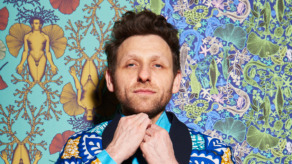Random acts of kindness

Practicing so-called random acts of kindness gives us all a tangible and easy way to make another person happy, and that perpetuates happiness. Journalist Anneke Bots finds out why it feels good to give and writes about it in Issue 18. Below you can read five side effects of kindness according to biochemist David Hamilton.
- Kindness makes you happier. When we do something nice for another person we feel good, because deep down we know it’s the right thing to do. What’s more, our brain makes the ‘happiness chemical’ called dopamine, a kind of natural feel-good drug.
- Kindness is good for your heart. Emotional warmth releases oxytocin, the ’cuddle hormone’. It expands the blood vessels, which reduces your blood pressure and lowers your stress levels. This is good for your heart.
- Kindness slows ageing. Oxytocin also reduces the number of free radicals and inflammation in the cardiovascular system—key aspects that contribute to the ageing process.
- Kindness improves relationships. It reduces emotional distance, so that we feel more connected to others. This dates back to the times of our ancestors, when cooperation was essential to survival.
- Kindness is contagious. Being nice inspires others to do the same and research has shown that this creates a ripple effect outward to our friends’ friends’ friends— to three-degrees of separation.
You can read the article ‘Random acts of kindness’ in Issue 18.
Text Anneke Bots Photography ©Bonninstudio/Stocksy United








